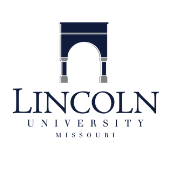
(View Complete Item Description)
This new publication by UNESCO is a timely resource and highly topical subject for all those who practice or teach journalism in this Digital Age. UNESCO's new handbook is an essential addition to teaching syllabi for all journalism educators, as well as practising journalists and editors who are interested in information, how we share it and how we use it. It is mission critical that those who practice journalism understand and report on the new threats to trusted information. Political parties, health professionals, business people, scientists, election monitors and others will also find the handbook useful in navigating the information disorder. Written by experts in the fight against disinformation, this handbook explores the very nature of journalism - with modules on why trust matters; thinking critically about how digital technology and social platforms are conduits of the information disorder; fighting back against disinformation and misinformation through media and information literacy; fact-checking 101; social media verification and combating online abuse. The seven individual modules are available online to download that enables readers to develop their own course relevant to their media environment.
This handbook is also useful for the library and information science professionals, students, and LIS educators for understanding the different dimensions of fake news and disinformation.
Table of Contents
Module One | Truth, Trust and Journalism: Why it Matters | by Cherilyn Ireton
Module Two | Thinking about "Information Disorder": Formats of Misinformation, Disinformation and Mal-Information | by Claire Wardle & Hossein Derakshan
Module Three | News Industry Transformation: Digital Technology, Social Platforms and the Spread of Misinformation and Disinformation |by Julie Posetti
Module Four | Combatting Disinformation and Misinformation Through Media and Information Literacy (MIL) | by Magda Abu-Fadil
Module Five | Fact-Checking 101 | by Alexios Mantzarlis
Module Six | Social Media Verification: Assessing Sources and Visual Content | by Tom Trewinnard and Fergus Bell
Module Seven | Combatting Online Abuse: When Journalists and Their Sources are Targeted | by Julie Posetti
Additional Resources: https://en.unesco.org/fightfakenews
Material Type:
Full Course,
Module,
Textbook,
Unit of Study
Authors:
Alexios Mantzarlis,
Cherilyn Ireton,
Claire Wardle,
Fergus Bell,
Hossein Derakshan,
Julie Posetti,
Magda Abu-Fadil,
Tom Trewinnard




















